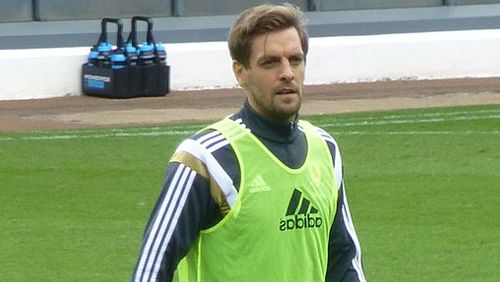
In my latest sports Op Ed piece, I want to focus on a decision made just 24 hours ago by one of the biggest football clubs in England.
Over the past few weeks, the statements, hashtags and passionate words of many football players, managers and clubs have displayed an allegiance to the Black Lives Matter movement around the world.
The fight for racial equality, felt so strongly by black managers and players for so many years, has seemed an endless, unwinnable war in recent years. However, from the moment Bulgarian football fans gave English players abuse last year, there seems to have been more momentum behind the movement.
In the past few weeks, following the killing of George Floyd, sports stars such as Colin Kaepernick and Raheem Sterling and football pundits such as Ian Wright and Gary Lineker have spoken movingly on how the time for action and change is now. How black people both in sport and around the world in all walks of life deserve equality and respect, the same as anyone else.
It was always going to be a revealing point on the graph as to how much change is really happening when the first manager to lose a high-profile job was sacked and what process that football club went through in recruiting their next manager.
Sadly, on Tuesday, we found out that wasn’t very much change at all.
Yesterday morning, Middlesbrough, who have played in twelve seasons of Premier League football, as well as winning the 2004 League Cup and reaching the UEFA Cup final in 2006, sacked Jonathan Woodgate as their first-team manager.
Here was the official club statement on the matter.
“Jonathan was relieved of his role on Tuesday morning and will be replaced by the experienced Neil Warnock. Warnock will assume responsibility immediately. The club would like to place on record its thanks to Jonathan for all his work in the role of head coach.”
Not only is it a minimalist statement in itself, paying no tribute to the fact that Woodgate was a former player in his first managerial position for instance, but it would appear that the Rooney Rule, which was adopted by the English football association in January 2018 and means that a quota of BAME (black and minority ethnic) candidates must be considered for roles, meant nothing to the North-East side.
Middlesbrough’s contribution to the Black Lives Matter movement on social media was this tepid effort – including their own club hashtag – which garnered just 21 retweets:
#NotTodayOrAnyDay #UTB pic.twitter.com/mGjT7l5lQe
— Middlesbrough FC (@Boro) June 20, 2020
Whether Neil Warnock is the right man for the job at Middlesbrough remains to be seen. To this reporter, that’s not the issue. The point is that the first time a major club could have shown that action and change are more important than a panicked quick fix – and at 71, it’s hard to see Warnock building any kind of dynasty at The Riverside – they failed to do so.
Numerous black managers might be wondering why they weren’t considered for the position. Chris Hughton, who took both Brighton and Newcastle into the Premier League might be one of them. If he was interviewed at lunchtime between Woodgate being fired and Warnock being hired, we’d be very surprised.
Action and change? They are still just words until clubs adopt the Rooney Rule to any hired positions, whether it’s as a manager, board member, sports scientist or any other role. Black players have long been seen as vital by football fans, so why are they not allowed to progress further along the football journey once their playing careers are over?
Decisions that are made by clubs when it comes to managers hold back BAME candidates by exclusion. Neil Warnock could lose all eight games he manages for Middlesbrough and send them down. He could win all eight and be hailed a hero. He’s not at fault here, but the club who hired him are.
Did Middlesbrough include BAME candidates in their process? How long between Jonathan Woodgate’s dismissal and Neil Warnock was there? These questions need to be asked and more importantly answered for those who speak of change to stick by their words and make a new future where everyone is treated equally.
If action and change really aren’t just words but have genuine meaning, then they should apply to every managerial role at the very least and at any club, including Middlesbrough Football Club.





